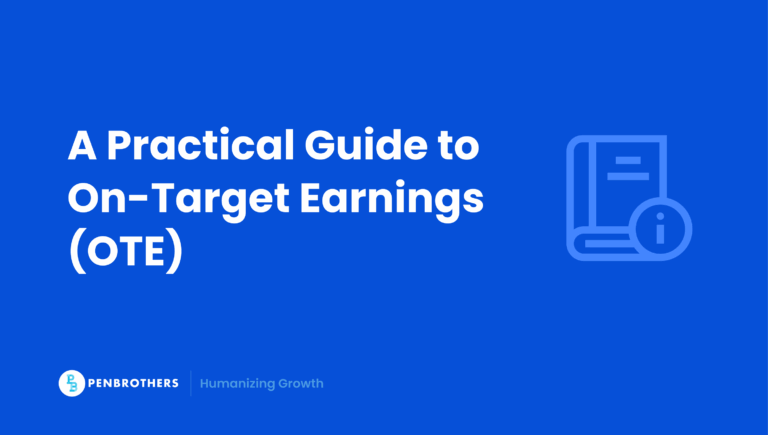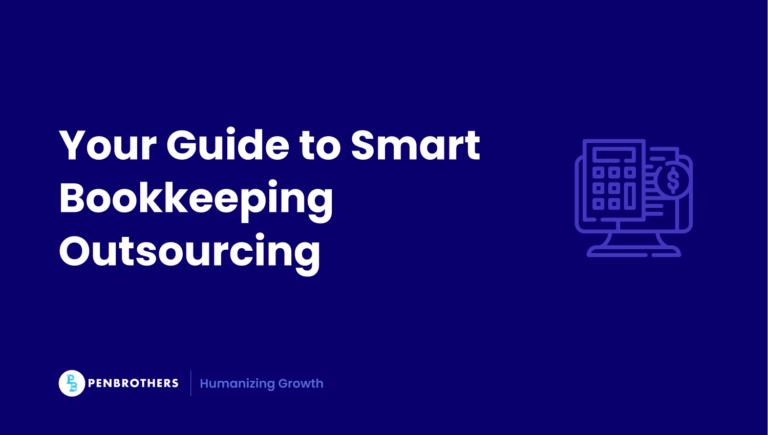Scaling your SEO shouldn’t break the bank. But building an in-house team takes time, budget, and bandwidth that fast-growing companies often don’t have. This is where offshore SEO consultants enter the picture. For startups, agencies, and lean marketing teams, they offer a flexible, cost-effective way to boost search performance without losing sleep over overhead.
SEO consultants bring more than just rankings. They bring technical expertise, keyword strategy, link-building capabilities, and most importantly, measurable results. Hiring offshore just amplifies the value if you do it right. Explore our complete outsource SEO business guide for a deeper dive.
Key Takeaways
- A Strategic Move for Specialized Skills and Cost Efficiency: Hiring an offshore SEO consultant is a strategic way for businesses to access specialized, expert-level talent in a high-demand field. It provides a significant cost advantage (e.g., a U.S. salary of $91,000 vs. $9,871 in the Philippines) and allows in-house teams to focus on core business goals.
- AI Has Increased, Not Decreased, the Value of SEO Experts: SEO is not dead because of AI. Instead, AI-driven search has made high-quality, authoritative SEO more critical than ever. The role of the SEO consultant has evolved from “ranking” to proving a brand’s Experience, Expertise, Authoritativeness, and Trustworthiness (E-E-A-T), which is what AI models use to generate answers.
- Success Depends on Mitigating Key Offshore Risks: The most common challenges of hiring offshore—such as time zone gaps, communication barriers, and data security—are manageable. Success depends on a proactive strategy that includes establishing overlapping work hours, thoroughly screening for English fluency, and using a secure, compliant partner.
- The Philippines is a Top Hub for SEO Talent: The Philippines is a premier destination for hiring SEO consultants. This is due to its unique combination of a highly skilled and cost-effective talent pool, high-ranking English proficiency, and strong cultural alignment with Western business practices, which simplifies communication and integration.
What Is Offshore SEO?
Offshore SEO is the practice of hiring search engine optimization (SEO) experts, consultants, or agencies located in another country, often to leverage specialized skills, 24/7 productivity, and significant cost advantages.
Instead of hiring an SEO specialist at a high local salary, a business in the United States, Australia, or the UK can partner with a dedicated SEO professional in a global talent hub like the Philippines. This allows the company to execute a high-level SEO strategy—including technical audits, content creation, and link building—for a fraction of the cost, turning SEO into a scalable, high-ROI investment rather than a major expense.
The Case for Hiring an Offshore SEO Consultant
Offshore SEO hires offer more than savings. They bring flexibility, scale, and global expertise. Here’s why it’s a smart move.
Cost Efficiency
Offshore hiring opens up access to global talent at a fraction of the cost. You avoid inflated local salary benchmarks and eliminate additional overhead such as benefits, office space, equipment, and lengthy onboarding. Instead, you gain access to high-value SEO expertise in markets where the cost of living is lower, making competitive rates more sustainable. Below is a salary comparison:
SEO Specialist
Optimizes websites for search engines to improve rankings and organic traffic.
Philippine Annual Salary: USD 9,871
United States Annual Salary: USD 91,000
Want a deeper look at salary benchmarks? Download our salary guide to explore rates across roles, markets, and experience levels.
This kind of cost efficiency allows early-stage and scaling companies to redirect budget toward tools, content development, or customer acquisition. SEO remains one of the most frequently outsourced marketing functions, making it a smart area to optimize for both performance and profitability. If you’re curious how other firms succeed, see how Australian marketing firms enhance their campaigns through outsourcing.
Specialized Skill Sets
Many offshore consultants are laser-focused on SEO, from on-page optimization to technical audits and advanced analytics. They often carry experience across verticals and geographies. The 2025 Local SEO Statistics report confirms this, with 59% of local agency marketers stating they plan to develop their AI and machine learning skills, highlighting that AI is now a core part of the SEO toolkit.
Scalability
Launching a new product? Expanding into a new market? These growth moments demand more resources but not necessarily more headcount. Offshore SEO consultants give you the ability to scale quickly without bloating your core team.
You can bring in specialists for time-bound campaigns, market-specific content, or technical cleanups, then adjust as needs evolve. This flexibility allows you to stay nimble, control costs, and move fast when the business demands it.
Fresh Global Perspectives
Hiring offshore doesn’t just add capacity, it adds context. SEO consultants from diverse markets bring cultural intelligence and localized insight that elevate your content strategy.
They can surface search behaviors, idioms, or trends that your local team might miss, especially if you’re targeting audiences across multiple regions. This matters more than ever. Search intent is deeply cultural, and relevance is the currency of modern SEO.
Focus on Core Business
Every hour your in-house marketers spend tweaking meta tags or disavowing links is an hour not spent building brand equity. By outsourcing execution-heavy SEO tasks, your team can prioritize higher-value initiatives, brand storytelling, partnerships, and product positioning. Learn more about the kinds of digital marketing services you can outsource to scale faster.
Your offshore SEO consultant becomes a dedicated operator, executing against KPIs while your internal team steers the long-term vision. This division of labor isn’t about doing less. It’s about doing what matters most.
Is SEO Dead Now With AI?
The answer is no, SEO is not dead—it is transforming. The introduction of Google’s AI Overviews has not replaced the need for SEO; it has made high-quality SEO more critical.
- AI Needs “Food”: AI Overviews and generative AI answers are built from the top-ranking, human-created content. This means that to be included, your content must be a trusted, authoritative source.
- E-E-A-T Is Paramount: Signals of Experience, Expertise, Authoritativeness, and Trustworthiness (E-E-A-T) are now the most important factors. AI is designed to find and summarize content from the most credible experts.
Hiring an SEO consultant is no longer about “ranking.” It’s about hiring an expert who can prove your brand’s authority and win the “AI citation.”
Common Challenges (and How to Solve Them)
Hiring offshore isn’t without friction. But the right systems, tools, and expectations make those challenges manageable. Here’s what typically gets in the way and what high-performing teams do about it.
1. Time Zone Gaps
It’s the first thing that concerns most managers. Collaboration takes a hit when working hours don’t align.
What to do:
- Establish 2–3 hours of daily overlap to sync on priorities and unblock decisions.
- Leverage async-first tools like Loom for walkthroughs, ClickUp or Notion for task visibility, and Slack for ongoing threads.
- Many teams solve this by hiring from countries with compatible time zones.
This is now a standard operating model for global businesses. As noted by 2025 analyses on remote work, companies are actively building teams across multiple time zones to achieve round-the-clock operations and productivity.
2. Language and Communication Barriers
Your SEO consultant might be great with data but unclear in reports or meetings. Misunderstandings here can snowball.
What to do:
- Screen for English fluency using written test tasks or short-form case studies.
- Request past SEO reports, email samples, or strategy decks.
- Choose consultants from countries with high English proficiency. The Philippines, for example, continues to rank as one of the top nations in Asia for English proficiency, according to the 2025 EF English Proficiency Index. This high-level fluency makes it a premier location for hiring client-facing consultants.
3. Cultural Misalignment
Work styles, feedback habits, and expectations differ across cultures. This disconnect can slow momentum.
What to do:
- Conduct value-fit interviews. Ask about their preferred way to receive feedback or handle roadblocks.
- Document workflows early. Rituals like weekly standups, async updates, and retros build shared rhythm.
- A strong offshore partner like Penbrothers can bridge these gaps through cultural onboarding and localized management support.
4. Quality Assurance
Not all SEO consultants are built the same. Some overpromise, others underdeliver.
What to do:
- Use trial tasks or phased onboarding to test deliverables before committing to a long-term contract.
- Agree upfront on performance benchmarks: rankings, traffic increases, click-through rates, and backlink quality.
- Require monthly reporting via tools like Google Analytics, Ahrefs, or Semrush for visibility and trust.
This challenge is amplified in the new AI-driven landscape. Success is no longer just about tracking rankings. The 2025 State of SEO Report confirms the focus has shifted to tracking E-E-A-T signals, topic clusters, and how content is interpreted by AI—metrics that require a specialized, expert consultant to manage.
5. Data Security and Compliance
You’re sharing logins, CMS access, and client data. Without protection, this becomes a liability.
What to do:
- Sign NDAs, data processing agreements, and IP ownership clauses before onboarding.
- Use password managers (e.g., LastPass, 1Password) and SSO solutions when available.
- Partner with vendors who understand global compliance and can advise on data security best practices across jurisdictions.
6. Legal and Contractual Clarity
Hiring across borders means dealing with labor laws, taxation, and contract enforcement.
What to do:
- Avoid risk by partnering with an offshore staffing provider like Penbrothers that handles local compliance.
- If going solo, seek legal advice on employment contracts and tax implications in your consultant’s country.
- Set expectations clearly. Scope of work, payment terms, termination clauses, and data use should all be documented.
Step-by-Step Process to Hire the Right SEO Consultant Offshore
Hiring offshore SEO talent isn’t about finding the cheapest option. It’s about building the right-fit capability without the overhead. This step-by-step process ensures you avoid common pitfalls and bring in someone who actually moves the needle.
1. Define Your SEO Goals
Start by defining what success looks like. Do you want to grow organic traffic? Improve technical SEO? Acquire backlinks from high-authority sites?
The clearer your goals, the easier it is to align with the right talent. Whether it’s content SEO, on-page improvements, or site speed fixes, specificity filters out generalists and highlights specialists who match your needs.
2. Choose the Right Location
Where you source offshore SEO talent affects more than just cost; it shapes how well your team collaborates, communicates, and delivers. Markets like the Philippines, India, and Malaysia continue to lead, thanks to their strong digital marketing ecosystems, cultural compatibility with Western clients, and growing specialization across technical and content SEO.
The right location isn’t just about savings; it’s about setting your team up for consistent, high-quality output.
3. Select the Right Hiring Model
How embedded do you want this person to be? Freelancers are great for one-off technical audits or link-building projects. Agencies work when you need bundled SEO and content packages.
But for long-term, daily collaboration without the HR overhead, offshore staffing partners like Penbrothers give you dedicated SEO consultants who feel like part of your in-house team but with none of the admin or compliance burdens.
4. Shortlist and Vet Candidates
Go beyond resumes. Look for evidence of results: keyword improvements, traffic growth, backlink acquisition, or domain authority gains.
Ask for case studies or analytics screenshots that show before-and-after metrics. Certifications from platforms like HubSpot, Moz, or Semrush are good but actual campaign experience is better.
5. Interview for Fit and Expertise
A good SEO consultant is part strategist, part technician. Don’t just ask “what tools do you use?” Ask how they would tackle your SEO bottlenecks: a flat content structure, stagnant rankings, slow site speed.
Look for answers that are structured, data-informed, and grounded in experience, not jargon-filled fluff.
6. Assess Communication Skills
SEO is technical, but communication shouldn’t be. Request past SEO reports, audits, or email updates to see how clearly they present insights.
Can they explain keyword cannibalization without sounding like a textbook? Clarity is non-negotiable if you want stakeholders to act on SEO recommendations.
7. Align on Budget and KPIs
Misunderstandings usually come from mismatched expectations. Agree on budget, scope, timelines, and KPIs up front. Whether you’re paying per hour, per milestone, or monthly, define clear deliverables like 10 content briefs, 15 new backlinks, or a +15% increase in non-branded organic traffic.
Semrush’s content marketing insights indicate that 67% of marketers track ROI from content marketing through leads and conversions generated by content, and 52% monitor organic traffic as a key performance metric.
These findings suggest a broader industry trend where traffic and conversions are prioritized over traditional metrics like keyword rankings. This shift emphasizes the importance of aligning SEO efforts with tangible business outcomes.
8. Contract and Onboard
Protect both sides with a service agreement that covers IP ownership, performance clauses, review cycles, and termination policies. Provide early access to key platforms: Google Search Console, GA4, CMS, and project management tools. Assign a single point of contact to streamline onboarding and prevent delays.
9. Monitor Performance Continuously
Great SEO takes time but progress should be trackable. Use tools like Ahrefs, Semrush, or Screaming Frog to validate technical tasks, keyword movement, and backlinks earned.
Set monthly check-ins to review performance against KPIs and align on new priorities. Transparency builds trust, especially in offshore settings.
10. Foster Open, Consistent Communication
Don’t go dark. Use Slack or MS Teams for daily alignment, Loom for async walkthroughs, and Notion or ClickUp for centralizing updates.
Create recurring rituals: Monday planning, Friday wins, monthly retros. Your offshore SEO consultant should feel like a core team member, not a siloed vendor.
11. Optimize and Iterate
No strategy survives first contact with Google’s next algorithm update. Review results quarterly. Get feedback from your offshore team. What blockers do they see? What should you double down on? Refinement isn’t a sign of failure. It’s how SEO wins long-term.
Traits of a High-Performing Offshore SEO Consultant
Not all SEO consultants are created equal. Some bring templates and vanity metrics. Others bring compounding impact. Here’s how to tell the difference and what to look for when hiring offshore.
1. Strategic Mindset with Executional Muscle
They don’t just throw keywords at the wall. They understand your business model, product funnel, and target personas. A strong offshore SEO consultant can translate high-level goals into actionable SEO plans, from technical audits and content clustering to link-building outreach. They work across the full funnel: visibility, rankings, conversions.
2. Fluency in Core SEO Tools
They aren’t learning tools on your dime. They’re already deep into Ahrefs, SEMrush, Screaming Frog, Surfer SEO, and GA4. They can spot crawl errors, keyword gaps, and backlink opportunities faster than you can book a status call. Tool fluency ensures faster insights, less guesswork, and stronger reporting.
3. Analytical, but Outcome-Driven
It’s not about data for data’s sake. Great consultants connect the dots between ranking shifts, traffic growth, and business KPIs. They should know how to create actionable dashboards, isolate what’s working, and recommend iterative improvements. Expect questions like: What’s your conversion rate from organic? Which keywords drive the highest LTV users?
4. Brand-Aware and Adaptive
SEO isn’t a silo. The best consultants adapt SEO strategy to your brand voice and business tone, so content doesn’t feel robotic or misaligned. They can distinguish between writing for a DTC skincare brand and a B2B SaaS platform and adjust accordingly. This is where many offshore hires fail. Top-tier ones don’t.
5. Proactive About Google Algorithm Updates
SEO moves fast. So should your consultant. It’s widely acknowledged in the SEO community that timely content re-optimization following algorithm updates is crucial for maintaining and improving search rankings.
Staying proactive in response to algorithm changes helps ensure that content remains aligned with current search engine criteria.
Bonus: They Ask Better Questions
They’ll ask about your domain age, link profile, competitor strategy, internal linking, and E-E-A-T signals. They’re not there to tick boxes. They’re there to rank you better, faster, and smarter while working seamlessly within your existing marketing structure.
Where to Find Top Offshore SEO Consultants
You know the what, now it’s time for the where. Where can you find offshore SEO consultants who are technically strong, communicative, and reliable? The answer depends on the scale of your needs and how deeply you want your consultant integrated into your team. Let’s break down your options.
1. Freelance Platforms
For project-based work or quick wins, freelance platforms work well. Upwork, Fiverr, and Toptal host thousands of SEO professionals with varying rates and skill sets. You can hire fast, but you’ll need to vet thoroughly. Quality and consistency vary widely.
Best for: Short-term audits, link-building tasks, or one-off content optimizations.
2. SEO Agencies
Want a full-service solution? Agencies can deliver comprehensive SEO services, from strategy to implementation. They often bundle SEO with web development, paid ads, and content. But you might pay a premium, and individual attention can be limited.
Best for: Companies that want to outsource SEO entirely without building internal capabilities.
3. Offshore Staffing Partners
If you want someone who functions like part of your in-house team, but without the overhead. This is the smart route. Penbrothers gives you access to pre-vetted, embedded SEO consultants based in the Philippines. We handle the HR, compliance, onboarding, and workspace infrastructure, so you can focus on SEO results, not contracts, payroll, or local regulations.
Best for: Startups, marketing teams, and agencies scaling long-term SEO without internal hiring strain.
Top Countries to Consider for Offshore SEO Talent
Choosing the right geography impacts not just cost, but also communication, time zone collaboration, and cultural fit.
Here are the leading offshore SEO hubs worth considering:
The Philippines
- Strengths: High English proficiency, cultural alignment with Western markets, and excellent communication skills.
- Ideal for: Content SEO, reporting, link-building outreach, and technical SEO roles that require real-time updates.
- Why it stands out: Many professionals are trained in Western marketing practices and client management.
- Penbrothers is headquartered here, and we’ve seen firsthand how seamlessly SEO talent integrates into global teams. Get best practices for working with Filipino remote teams to keep quality high across borders.
India
- Strengths: Deep technical expertise, large SEO talent pool, and competitive rates.
- Ideal for: Technical audits, site speed optimization, large-scale content ops.
- Watch for: Communication styles and time zone differences depending on your region.
Malaysia
- Strengths: High digital literacy, solid English communication skills, and growing SEO specialization.
- Ideal for: Content localization, technical SEO, and analytics-focused projects.
- Why it’s gaining traction: Malaysia’s growing startup ecosystem and government support for digital economy initiatives have expanded its talent pool significantly.
Final Thoughts
Hiring an offshore SEO consultant isn’t a shortcut. It’s a strategy. When done right, it gives you access to talent, insights, and agility that would be expensive to build internally.
At Penbrothers, we help you find, hire, and manage SEO consultants who deliver long-term results, not just temporary gains. From vetting to payroll and performance reviews, we handle the backend so you can focus on what matters. Discover why now is the time to outsource digital marketing and stay ahead of the curve.
Ready to find the right SEO consultant for your team? Let’s talk.
Frequently Asked Questions
Offshore SEO is the practice of hiring an SEO expert, consultant, or agency located in another country. Businesses do this to leverage specialized skills, achieve significant cost savings, and scale their marketing efforts without the high overhead of hiring a local in-house team.
No, in fact, AI has made expert-level SEO more important. AI-powered search results and “AI Overviews” generate their answers by pulling from the most trusted, authoritative, and high-quality content on the web. The job of an SEO consultant has evolved to focus on proving a brand’s E-E-A-T (Experience, Expertise, Authoritativeness, and Trustworthiness) to ensure its content is selected by AI.
The cost savings are substantial. For example, an SEO Specialist in the United States earns an average annual salary of $91,000. The same role in the Philippines has an average annual salary of approximately $9,871, allowing a company to access top talent for a fraction of the domestic cost.
Beyond basic SEO knowledge, you should look for a strategic mindset (they understand your business, not just keywords), fluency in core SEO tools (like Ahrefs, Semrush, and GA4), an analytical but outcome-driven approach (they connect rankings to revenue), and proactiveness in adapting to Google’s algorithm updates.
While you can use freelance platforms, the most strategic and legally compliant method is to partner with an offshore staffing provider or Employer of Record (EOR). This partner handles all the vetting, hiring, payroll, and local labor law compliance, which mitiges your legal and security risks and ensures the consultant is a fully integrated, long-term member of your team.






